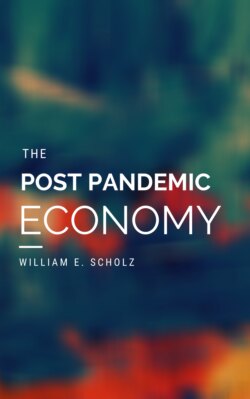Читать книгу The Post Pandemic Economy - William E. Scholz - Страница 11
На сайте Литреса книга снята с продажи.
The Re-emergence Of The Nation State
ОглавлениеAs we discussed, the Nation-State must be the center of Economic Activity. Centering the Nation-State involves three select policy initiatives. The first is to end illegal immigration, while making legal immigration significantly less burdensome for tradesmen and tradeswomen and those with advanced technical skills. The American immigration policy framework must support the "flexible" migration between workers of trades, and it must be a policy framework adopted with allies in the Western Hemisphere.
The second, and arguably the most important, is to re-engineer the post-war Non-Governmental Association (NGO) Order to better support the needs of Nation-States. Currently, NGOs are established as a pay-to-pay relationship with wealthier nations controlling more power on the equivalent of a Board of Directors level control over the organization. The United Nations is the primary example.
For an NGO sector to support the Nation-State, the structures of NGO organizations must operate in a more democratic fashion. To change NGOs into organizations that can do so, NGOs must be bound by a separate legal framework supported by International Law that prevents internal corruption. A new framework for "Articles of Agreement" among member Nations must include the following points:
1 National representatives must be democratically elected by participant Nations. Democratic elections must include a popular vote format of the Member Nation's choosing. Member Nations can no longer make political appointments to the "Boards" of NGO organizations.
2 NGO Oversight must include the ability of Member Nation Representatives to vote on the organization's annual budget.
3 NGO oversight must include the budget to be publicly released with adequate time for public comment before Member Nation Representatives vote on the final budget for the upcoming year.
As a reflection of this key change to the management of the "Third Sector" in International Affairs, local authorities and nonprofit equivalents should also adopt the public election mandate to govern their affairs internally.
These reforms to NGOs reaffirm the Nation-State as a cultural, political, and authoritative institution with direct control over its foreign policy directive. Eliminating the unelected bureaucrat from public affairs is THE major priority of International Relations in the 21st century and beyond.
Third, Nation-States, and Member Nations within NGOs, must have the ability to negotiate bi-laterally with other Nation-States. Membership in any International organization must not impede the bi-lateral negotiations between Nation-States.
Nation-States must have the ability to negotiate bi-laterally to increase the speed of economic production to renovate from the coronavirus pandemic. Bi-lateral negotiations combined with short-term labor migration will supercharge a crippled global economy. Allowing nations to negotiate labor supply bi-laterally is a game changer.
In addition to exchanging goods, services, and capital, nations located near one another can coordinate on large scale infrastructure projects that demand a specific workforce set. Workers win big, as they now have twice or three times the opportunity than otherwise by combining the opportunity available in the large-scale infrastructure and economic sectors of multiple economies. Further, workers now have an additional stake in international affairs, and can bring the truth of the Democratic Republican's voice to a world that so desperately needs freedom and justice for all.
In this time, bi-lateral trade supersedes regional trade blocs, which must be phased out and eliminated altogether. The experiment of regional trade blocs provided an initial economic boost to member nations, however, led to toxic immigration that saw workers abandoning home countries at alarming rates and a decade of diminishing returns and stagflation as a result of wealthier countries losing out on trade opportunities in the advanced economy.
Regional trade blocs also inflamed political tensions as unelected bureaucrats made decisions that personally benefited special interest groups, another reason that the sovereignty of the Nation-State must become the highest priority in the Post Pandemic Economy.
These series of reforms to the Nation-States require relatively little political will or political capital. They are sensible, practical, and easy to integrate. Nation-States that choose to prevent, block, or circumvent these reforms are not on the side of peace and prosperity.
